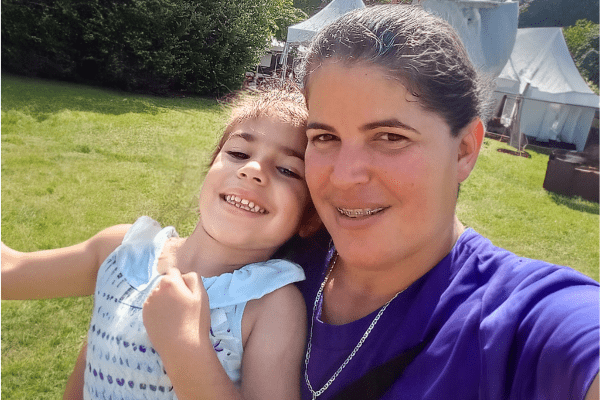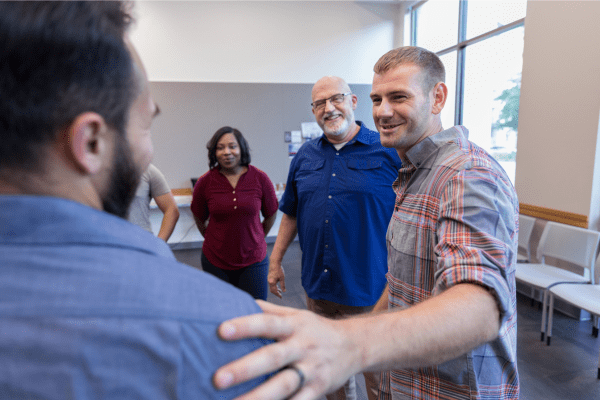
Yammara | Unwavering Support
Yammara Sambrine has been part of Epilepsy Alliance Florida since she moved to Miami in 2006. She had her first

As someone who always had a passion for being of service to their family and friends, I had in mind that my career was going to be geared towards providing services or resources to the community. With many choices at hand, I decided I wanted to devote myself to aiding families in need of goods and resources for their home, their own families, and principally, their own well-being, compared to other families that may have a bigger opportunity to provide goods for their home on their own accord. As time went on, I realized one of the most impacted populations that lacked the necessary assistance to provide resources in their homes were the disabled members and families of my city. With further research, I found Epilepsy Alliance Florida (EAFLA) whose mission is to support those impacted by epilepsy by confronting the spectrum of challenges created by seizures. The one main problem I had was that I had very little to no experience with what epilepsy is, let alone knowledge of how to provide help for someone who has a seizure or recognizing a seizure when it occurs.
As I found myself in a new organization as a social services case manager, with the same ideals and goals as the ones that I have had ever since I was younger, I realized that I needed to dive into the world of neurodiversity to learn exactly what epilepsy is. With time given to research, be active on educational trainings regarding epilepsy, and reading articles and blogs about this neurological disorder, I quickly found myself emerged in the world of neurology and neurological diagnoses. With further assistance and resources provided by EAFLA, I began to shadow other case managers that spoke with individuals and families affected by epilepsy and began to learn that there is a whole new side of my own world in my city that I had never seen before. Little by little, I began to build confidence, started speaking with families and individuals by myself while utilizing my previous case management skills, and began applying my new understanding about what epilepsy is. This included what seizures are and how they can affect someone, not just regarding brain activity, but all other aspects that I would have never thought would be affected by the neurological disease.
Even though I do not have epilepsy myself, I have come across and aided many families and individuals that have epilepsy; either from very early stages in their life or people who have been diagnosed with epilepsy later on as a teenager or adult. Every single person is different, with epilepsy affecting each person uniquely. Even though there are many differences, I saw a constant factor throughout most, if not all, the people I’ve come across and that is that they continue to lead a life of their own. Whether it’s a life with a lot of support for medical needs or taking actions of their own accord, everyone has understood that epilepsy is a part of them that, on the whole, could never be changed. Although someone has epilepsy, there are factors that come into play that can help them have control over their seizure activity. Throughout my time with EAFLA, I have learned that having a great support system around, family and friends alike, while being aware what can trigger someone’s seizures, making sure they are not in a position where they can be exposed to those triggers, and continuing to take medication even if there hasn’t been a seizure in some time, can greatly benefit a person suffering chronic seizures and can make a huge difference in their daily life.
I would be lying if I said that the road to providing support and services to my community was an easy one. There are still many families affected by epilepsy in my community who require different amounts of help and resources and, due to factors outside of their control, cannot obtain what they are looking for. This is why it is so important for organizations, like EAFLA, to partner and network with other local non-profit organizations that can provide different types of resources that may have not been offered before. Because people living with epilepsy require a good support system to provide help when needed, non-profit organizations have also been creating networking and support systems so that they can be referred to a specific center, organization, or foundation that can cater to what they are requesting.
As I said before, being of service for my community has been my calling ever since I was younger. I consider myself lucky to have come across an organization that nurtures the value of support, advocacy, and empowerment for my community that lives with epilepsy.
Written By: Stefano Cornejo

Yammara Sambrine has been part of Epilepsy Alliance Florida since she moved to Miami in 2006. She had her first

Meet Teo Vasconcellos, an inspiring 18-year-old boy who came to the U.S. from Argentina in 2016. At the age of